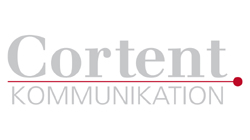The German Mittelstand
Innovation against the grain – SME computerisation still out in the cold

German SMEs are still today not at all persuaded that there are worthwhile benefits to be reaped from computerisation. The conclusion reached by a survey conducted by Deloitte Digital shows that IT has made few inroads in the area of German industry dominated by SMEs; roughly 87% of companies interviewed feel that they still have room for improvement. Some small consolation may be gained, however, from the underlying awareness that the megatrend is overwhelmingly pushing in this direction.
Mention computerisation to many companies and it becomes clear that they have little idea what it’s all about, let alone have any strategy in mind for implementing it. SMEs still don’t know how computerisation can dovetail with their company strategies nor have they any inkling as to how it could be put to use to troubleshoot problems, a state of affairs glaringly obvious in almost every field in which SMEs are predominant.
Computerisation has a multitude of potential applications. The entrepreneur comes to realise just how powerful a tool it can be when the answers it provides begin to make themselves felt and then when the positive effects are reflected in the company numbers. Companies with tangible product can see the speed with which machine-related data are obtained and assessed, one example of measurable benefit. In other words, this is “Industry 4.0”. Take, for instance MAHLE GmbH of Stuttgart, a supplier on the global stage to engine manufacturers and automobile makers; shortly after installing a new web-based production software program, its Leibertingen facility witnessed an upswing in output of more than 30%. This particular 4.0 technology intercepts production glitches, and updates the working tickets in real time. This optimises machine time, saving material and energy. The software was developed by IT-Technologie- und BeratungshausForcam in Ravensburg, a pioneer in “4.0 industry”.
This is a spectacular example of how computerising processes can produce benefits. Unfortunately, though, the majority of SMEs is light years away from reaching this stage, and many light years at that. Indeed, as Mario Ohoven president of BudnesverbandMittelständischeWirtschaft (BVMW) ruefully points out, one fifth of SMEs still have no Internet site. His point is well made; if you don’t have a website by now it’s obvious you couldn’t handle computerising procedures.
German SMEs are renowned both at home and abroad for their ability to temper innovation with tradition. This is where it excels. Entrepreneurial decisions are reached after considerable thought, with sustainability very much in mind. Thoroughness, as becomes a person vested with responsibilities, demands that new technologies, developments and trends be approached slowly. However, as soon as a certain technology has proved its functional worth and the cutting edge shifts to the status of benchmark, the risk that the small or medium size entrepreneur is called upon to face is vastly reduced.
To survive in the face of international competition one must be able to decide on new processes within ever shorter time frames. Those who miss the train the first time round will always lag behind. German SMEs are still world leaders in many fields of technology and that position is not to be placed in jeopardy by a counterproductive clinging to tradition. That is why moves towards computerisation must be taken in hand and put into practice speedily and with top priority.















